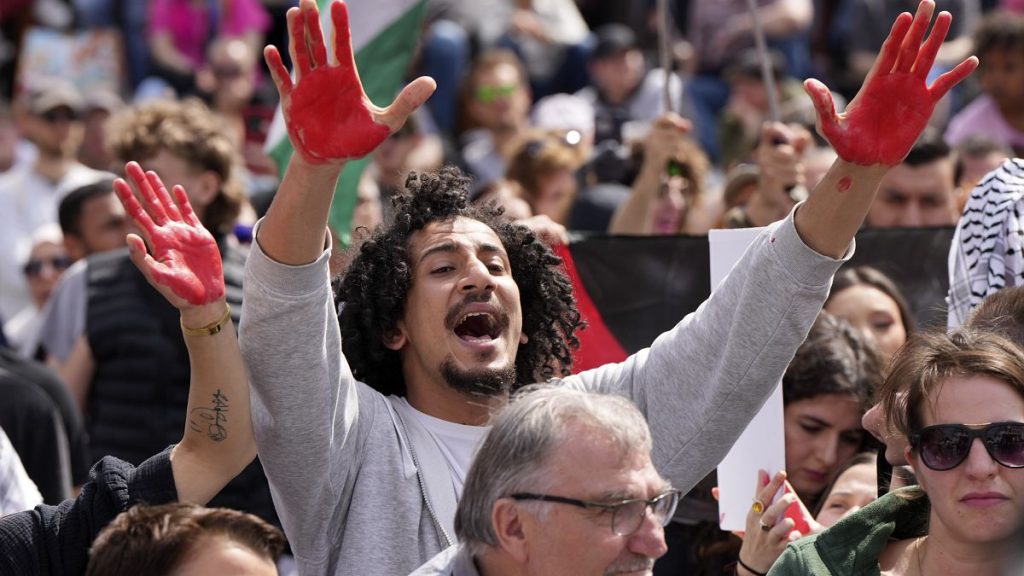Germany’s Chancellor Olaf Scholz faced criticism from pro-Palestinian protesters at the final Social Democrats (SPD) rally ahead of the European elections due to the country’s support for Israel in its military campaign against Hamas in Gaza. Despite being heckled by the protesters, Scholz defended Germany’s stance, stating that the Hamas attack on Israel was “inhumane” and highlighting the country’s special responsibility for Israel. Germany has significantly increased its arms exports to Israel and Scholz admitted to supporting Israel’s military campaign by urging them to request whatever assistance is needed. However, the high number of casualties in Gaza has led to questions about Germany’s unwavering support for Israel.
This is not the first time Scholz has faced criticism for backing Israel, as he was heckled at the opening of the Leipzig Book Fair in March. Despite this, he emphasized the importance of words in bringing people together and condemned violence against politicians. Germany has seen an increase in assaults on politicians this year, with 22 incidents reported so far compared to 27 in all of 2023. Scholz vowed to take action against those perpetrating violence and threatening politicians and volunteers. He also addressed the killing of a police officer by an Afghan man at an anti-Islam rally and pledged to toughen deportation rules, acknowledging the potential boost it might give to the far-right Alternative for Germany party.
At the SPD rally, Scholz also discussed the Russian invasion of Ukraine and NATO’s involvement, stating that a vote for the European SPD was a vote for peace. He assured that efforts would be made to prevent an escalation of the conflict and emphasized that there would be no soldiers from Germany or NATO in Ukraine. Scholz’s commitment to peace and de-escalation in the region was highlighted as a key principle of his leadership. The chancellor’s stance on international conflicts, as well as on domestic issues such as political violence and support for Israel, received mixed reactions from the public and protesters.
Germany’s Federal Criminal Police reported the rise in assaults on politicians, with Scholz condemning such acts and promising to protect freedom of speech. The killing of a police officer at an anti-Islam rally was highlighted as an example of the need to address violence and threats in the political sphere. Scholz also acknowledged that migrants are often victims of violence committed by right-wing extremists, emphasizing the need to address such issues. The chancellor’s speeches and actions are being closely watched, with some segments of the population expressing support for his stance on various issues while others criticize him for his policies.
Overall, Olaf Scholz’s leadership has been marked by challenges, both domestically and internationally. His support for Israel in its military campaign against Hamas in Gaza has attracted criticism from pro-Palestinian protesters, questioning Germany’s unwavering allegiance to Israel. At the same time, Scholz has emphasized the need for freedom of speech, condemned violence against politicians, and vowed to prevent an escalation of conflicts such as the Russian invasion of Ukraine. The chancellor’s actions and statements have elicited a mix of reactions, with some supporting his policies while others remain skeptical. As Germany prepares for the European elections, Scholz’s leadership and decision-making will continue to be scrutinized by the public and political analysts alike.












